
China’s new ideas: People, power, progress
Mark Leonard welcomes Alicja Bachulska and Janka Oertel to discuss their latest book, “The Idea of China.”
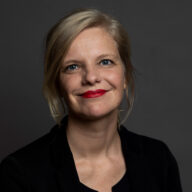
Director, Asia programme
Senior Policy Fellow
Europe-China relations, US-China relations, Security in East Asia, Chinese Foreign and Security Policy, Geopolitical Dimension of Emerging Technologies
German, English, French (conversational), Chinese (fair)
Dr Janka Oertel is director of the Asia programme and a senior policy fellow at the European Council on Foreign Relations.
Oertel previously worked as a senior fellow in the Asia programme at the German Marshall Fund of the United States’ Berlin office, where she focused on transatlantic China policy including on emerging technologies, Chinese foreign policy, and security in east Asia. Prior to joining the GMF, she served as a programme director at Körber Foundation’s Berlin office. She was also a visiting fellow at the German Institute for International and Security Affairs (SWP Berlin) and worked at United Nations Headquarters, New York, as a Carlo-Schmid fellow. She has published widely on topics related to EU-China relations, US-China relations, security in the Asia-Pacific region, Chinese foreign policy, 5G and emerging technologies, as well as climate cooperation.
She has testified before the US Senate Foreign Relations Committee and the German Bundestag, and is frequently quoted in leading media outlets such as the Financial Times, the New York Times, The Economist, Süddeutsche Zeitung, El Confidencial, Berlingske, and many more. Her new book “Ende der China-Illusion. Wie wir mit Pekings Machtanspruch umgehen müssen” was published in August 2023 with Piper in Germany.
Oertel holds a PhD from the University of Jena. Her dissertation focused on Chinese policies within the United Nations.

Mark Leonard welcomes Alicja Bachulska and Janka Oertel to discuss their latest book, “The Idea of China.”

China’s ideas could become the country’s next big export. The Idea of China examines Chinese thinking about global order, AI, demographic change, and more – and considers how these ideas could influence the world
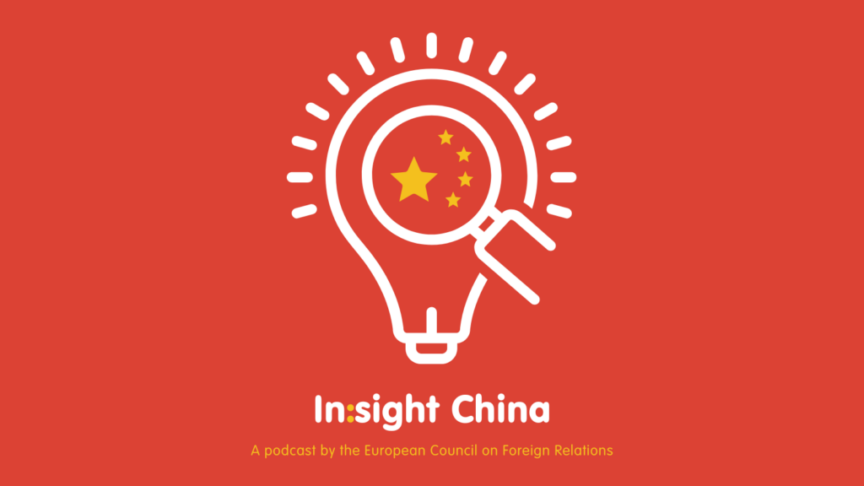
Mark Leonard welcomes Angela Zhang to discuss China’s big tech regulation
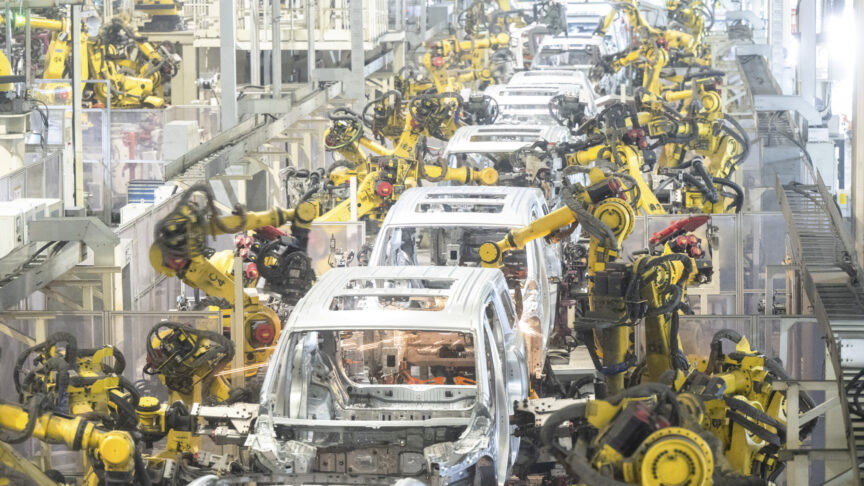
European policymakers need to answer the ‘trust question’ of how far they want Chinese companies involved in green industries such as solar energy, batteries, and electric vehicles

Mark Leonard welcomes Robbie Diamond and Janka Oertel to discuss de-risking and the future of Europe’s green industries
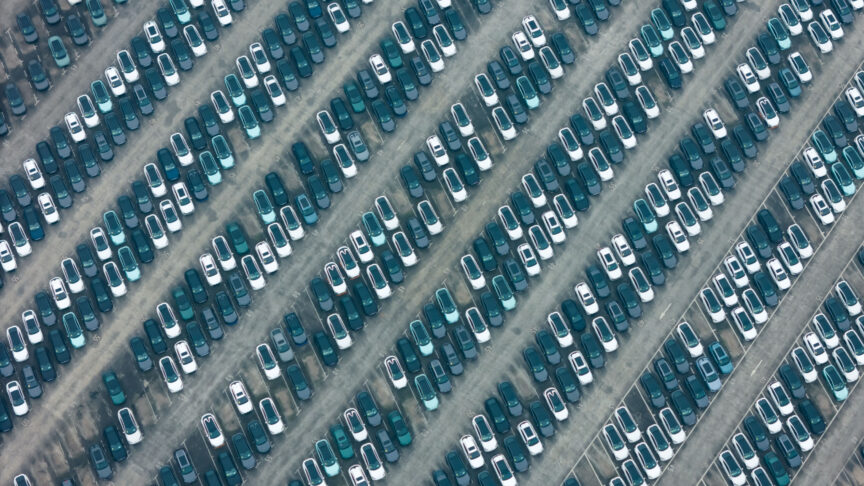
The security challenge posed by Chinese electric vehicles is in many ways greater – and trickier to solve – than that of 5G networks. With such cars entering the European market at growing speed, policymakers need to move swiftly
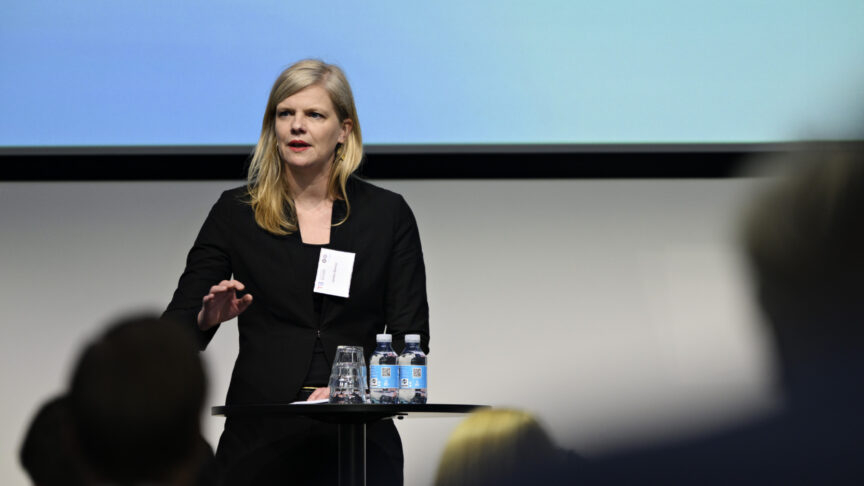
Mark Leonard welcomes Janka Oertel to discuss her new book “End of the China illusion” and the West’s biggest misconceptions about China
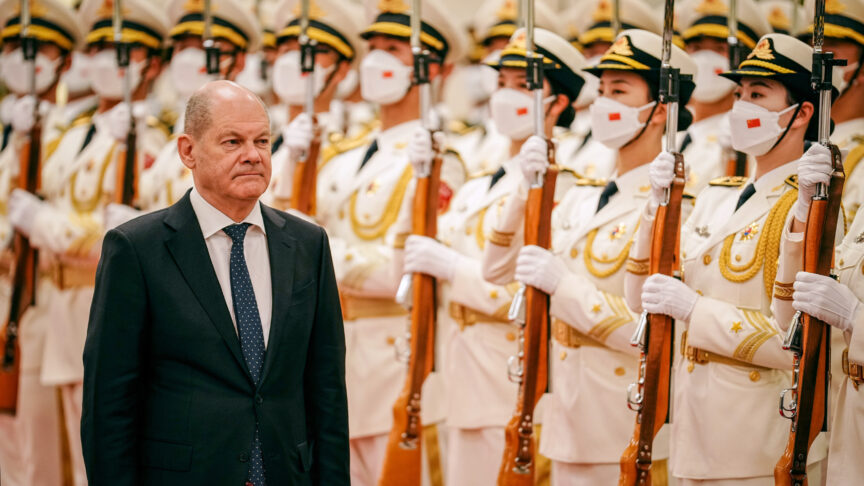
The German government has shed most of its illusions about the future political and economic relationship with China. How it navigates the implementation of its new approach will have significant implications for the EU and other member states
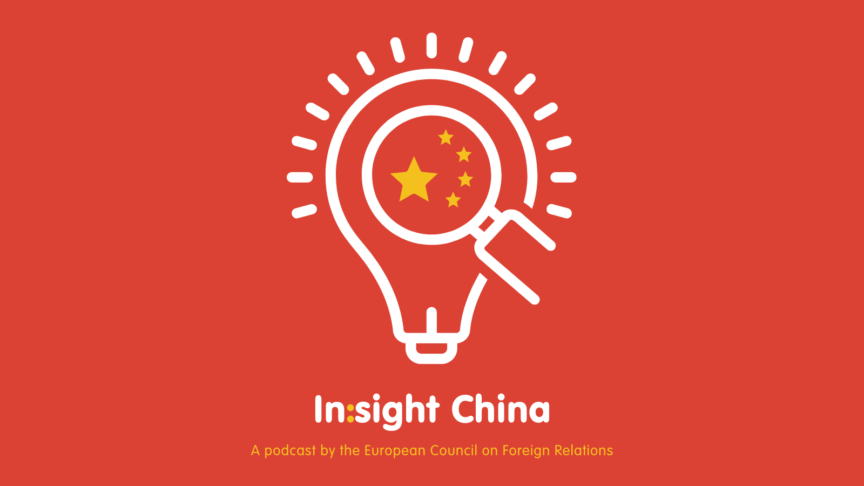
Mark Leonard welcomes Duan Jiuzhou to talk about China’s role in the MENA region

Janka Oertel welcome Wang Dong, to talk about the current tensions between Washington and Beijing

China’s ideas could become the country’s next big export. The Idea of China examines Chinese thinking about global order, AI, demographic change, and more – and considers how these ideas could influence the world

European policymakers need to answer the ‘trust question’ of how far they want Chinese companies involved in green industries such as solar energy, batteries, and electric vehicles
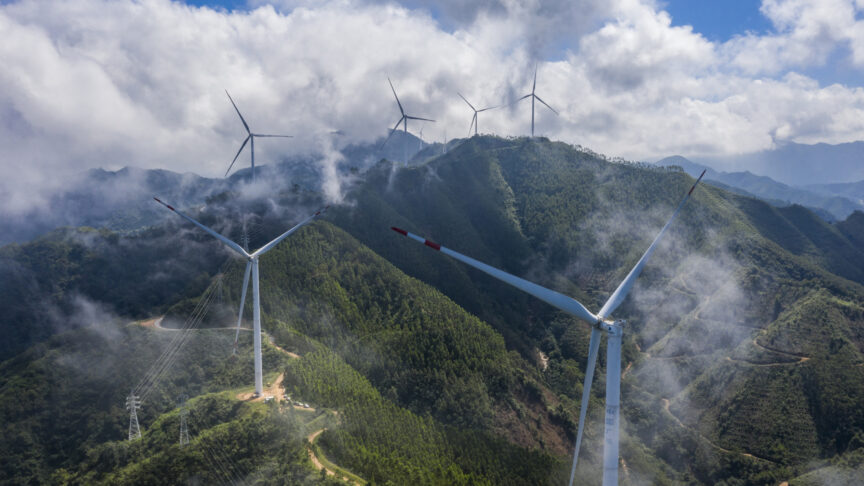
Europeans risk over-dependence on China for the green technologies needed to build the low-carbon economy of the future. They should take steps to reduce their exposure – while recognising they will have to work with Chinese suppliers in some instances
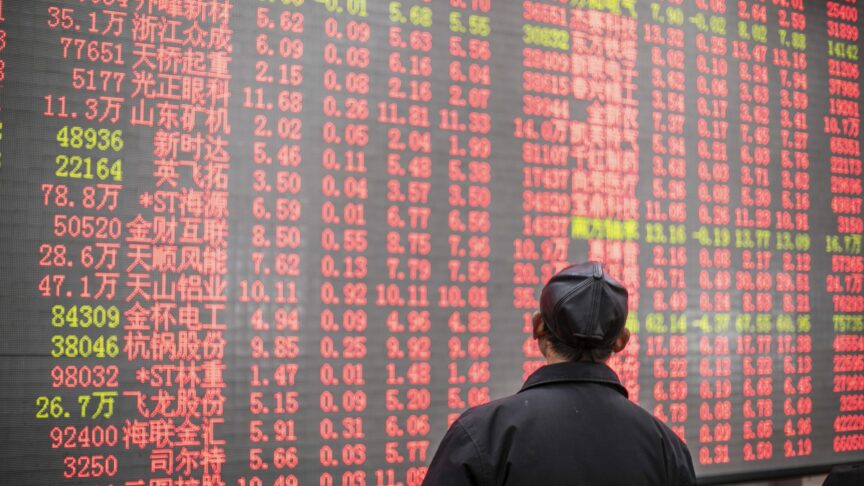
The EU urgently needs to incorporate the concept and reality of the ‘protected home market advantage’ into its thinking on China
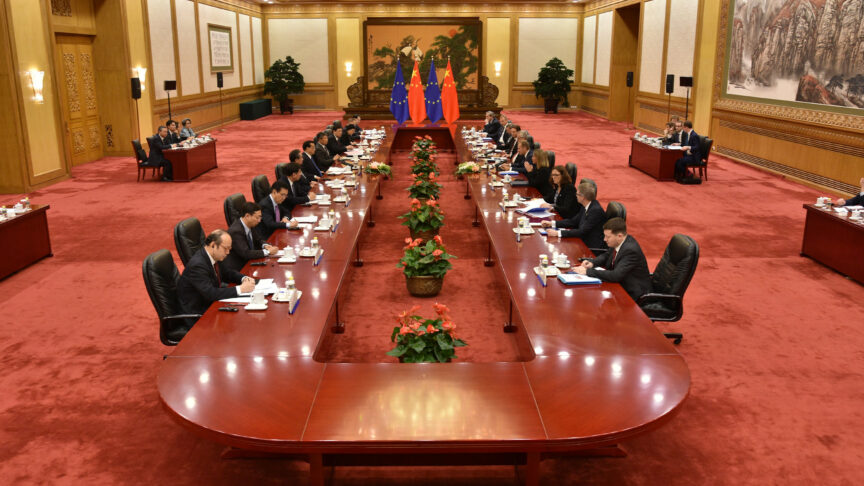
As climate action becomes more material to economic interests, Europe and China will both compete and cooperate with each other, against the backdrop of an overarching systemic rivalry
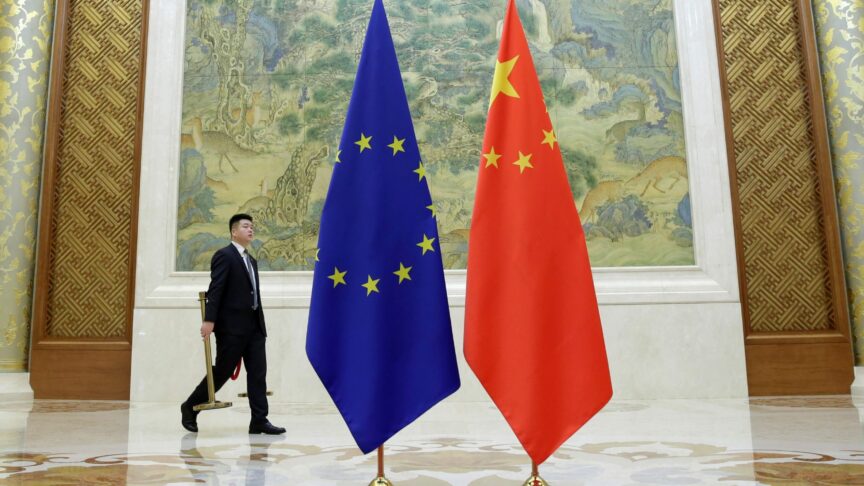
Europe should upgrade its security activities, and seize the moment to push multilateral institutions up the agenda. But it will be Europe’s connectivity agenda that provides the golden thread running through its foreign policy and its other objectives in the region
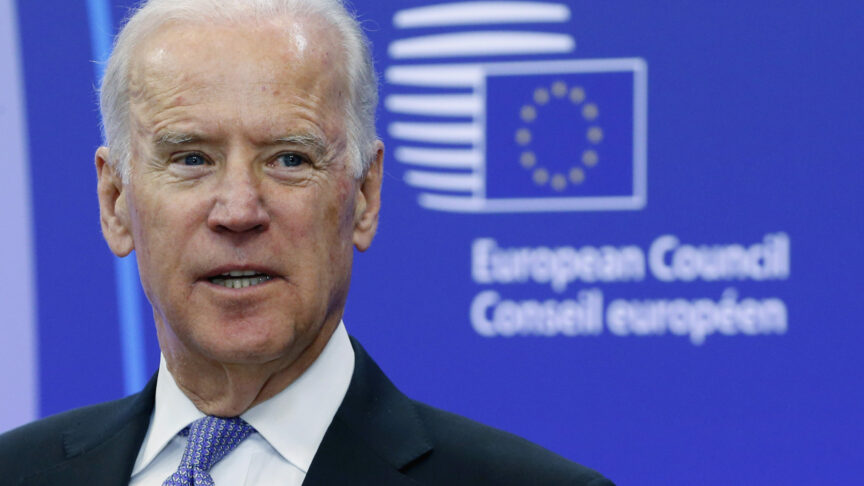
The Trump years galvanised Europeans’ efforts to strengthen their own sovereignty; they now need to agree concrete offers they can make to the new administration
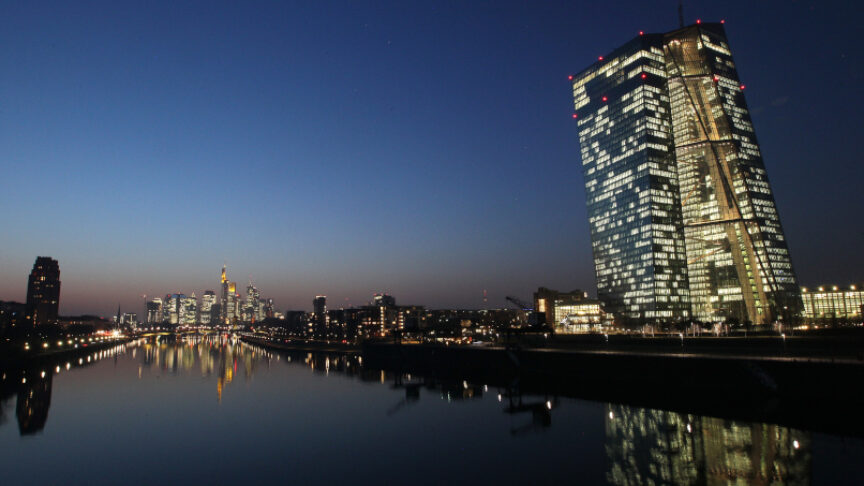
The EU should move quickly to consider and adopt a suite of tools to protect and enhance European sovereignty in the geo-economic sphere
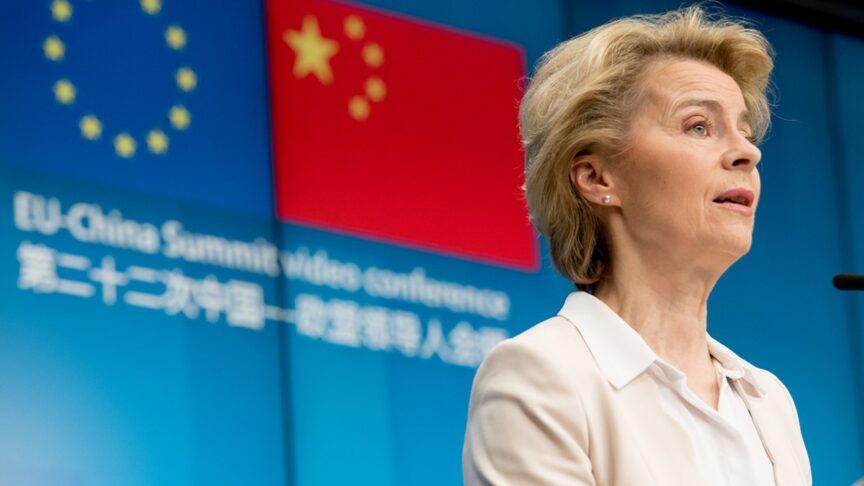
In its remaining months, the German Council presidency could use this momentum to create institutional structures to improve the EU’s capacity to act
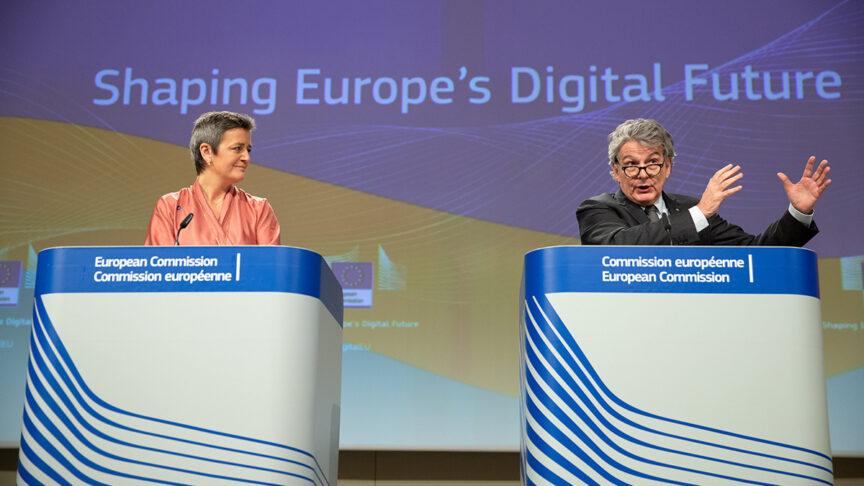
The EU cannot continue to rely on its regulatory power but must become a tech superpower in its own right. Referees do not win the game

The security challenge posed by Chinese electric vehicles is in many ways greater – and trickier to solve – than that of 5G networks. With such cars entering the European market at growing speed, policymakers need to move swiftly

The German government has shed most of its illusions about the future political and economic relationship with China. How it navigates the implementation of its new approach will have significant implications for the EU and other member states
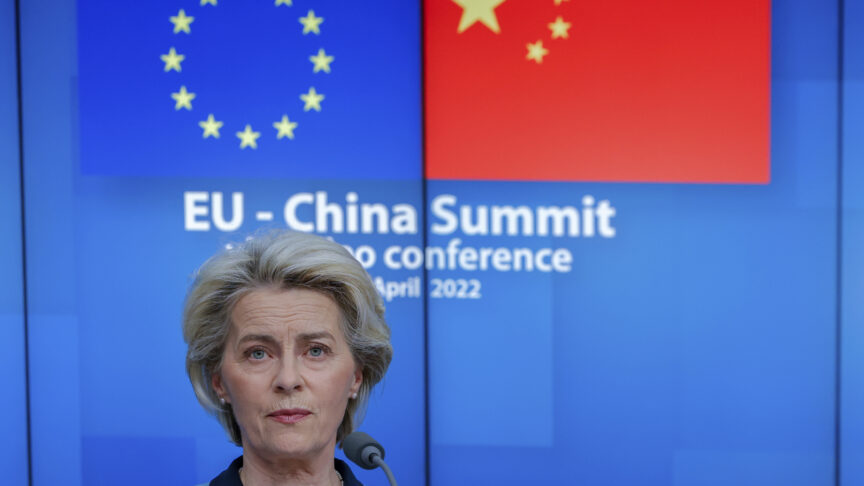
Numerous European leaders are beating a path to Beijing’s door. ECFR Asia director Janka Oertel and the German Marshall Fund’s Andrew Small reflect on European wishful thinking, clever tactical manoeuvres, and long-term strategic choices
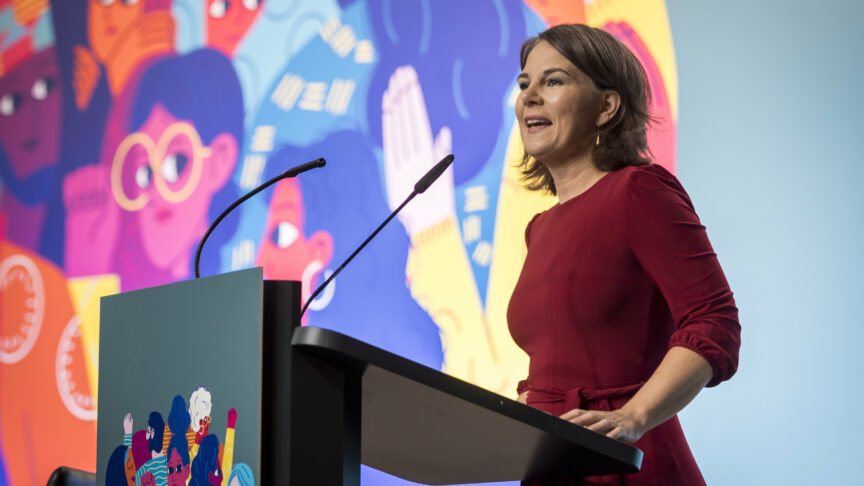
In a new world of strongmen and power politics, German policymakers should look beyond existing feminist foreign policy guidelines to develop a new China policy
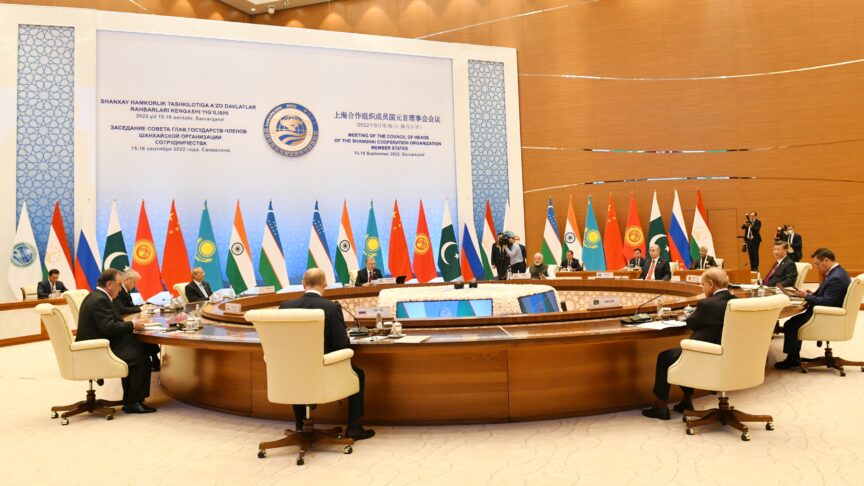
The SCO is often seen as the anti-NATO, but Putin will struggle to convince the other members – especially the Central Asian states – that his war is more important than Chinese investment
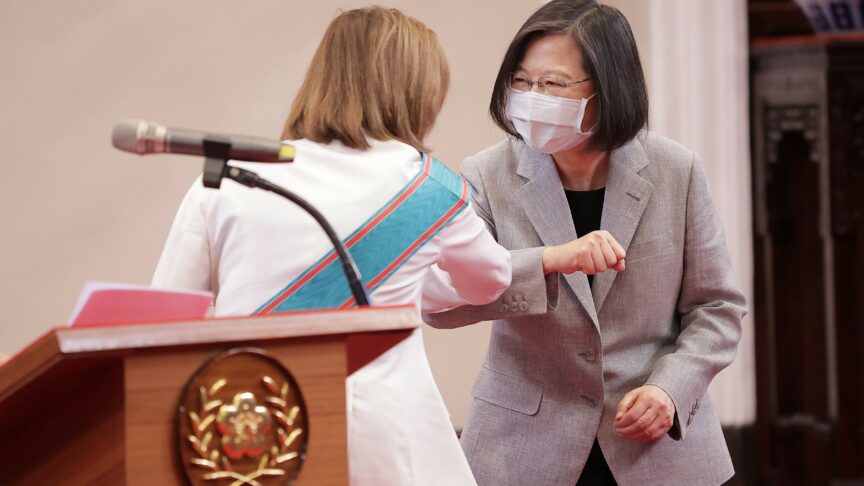
Nancy Pelosi’s visit to Taiwan is no deviation from established protocols as China claims. Rather, it is a sign of a fundamental change in lawmakers’ ability to support democracy
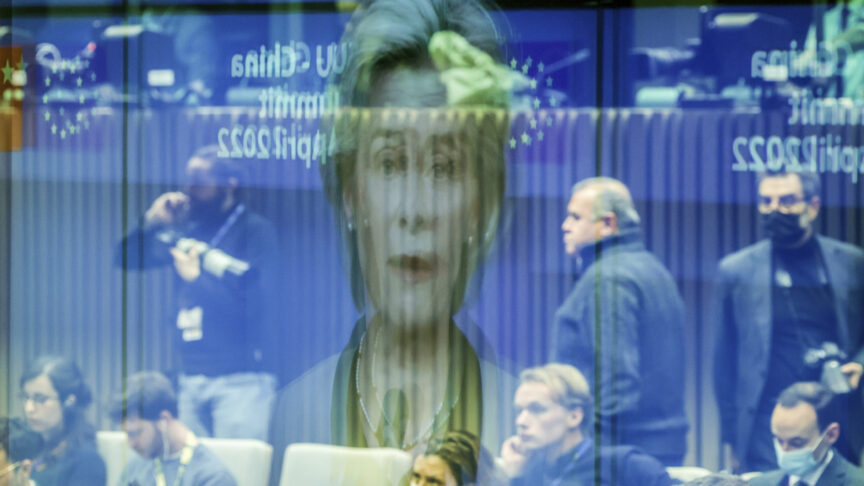
To address the systemic challenge China poses, the EU will also need to address the fallout in the global south of Russia’s war on Ukraine
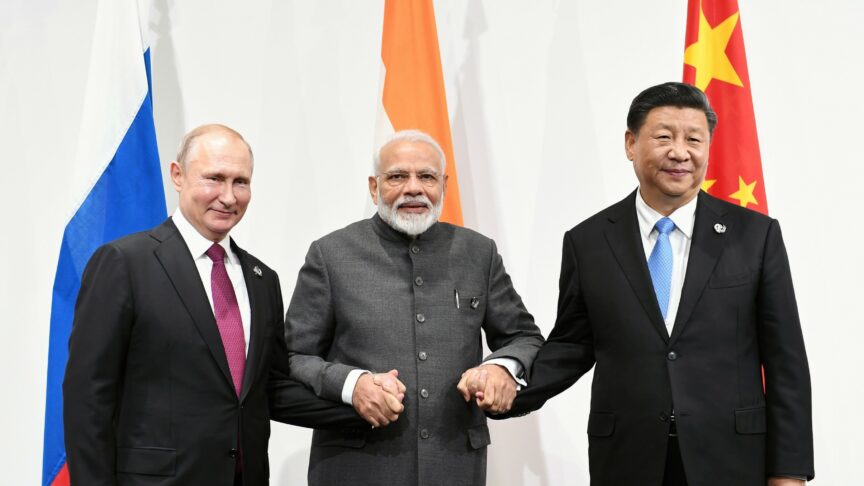
Asia’s three largest powers all have a stake in the Russia-Ukraine crisis. China hopes to change the global order, Japan aims to resist this effort, and India is eager not to alienate Russia or the West
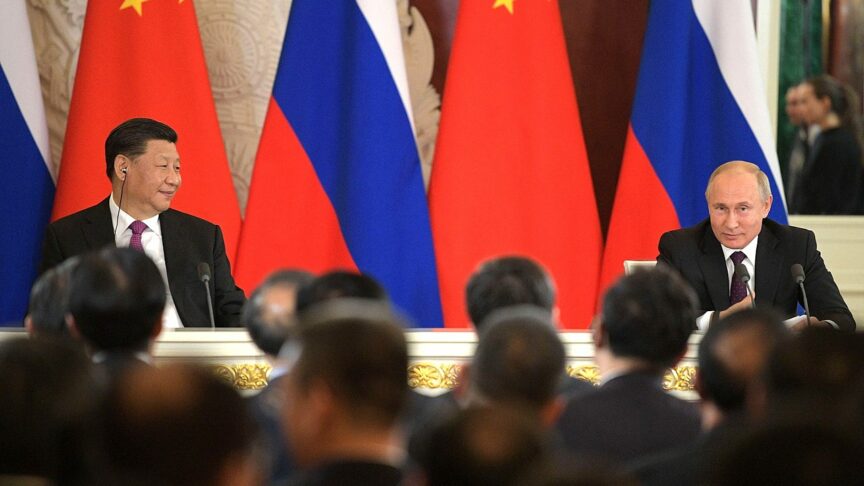
Beijing and Moscow are unlikely to rush to each other’s aid during a military escalation, be it in Ukraine or over Taiwan. But the enabling environment of their mutual diplomatic support matters greatly
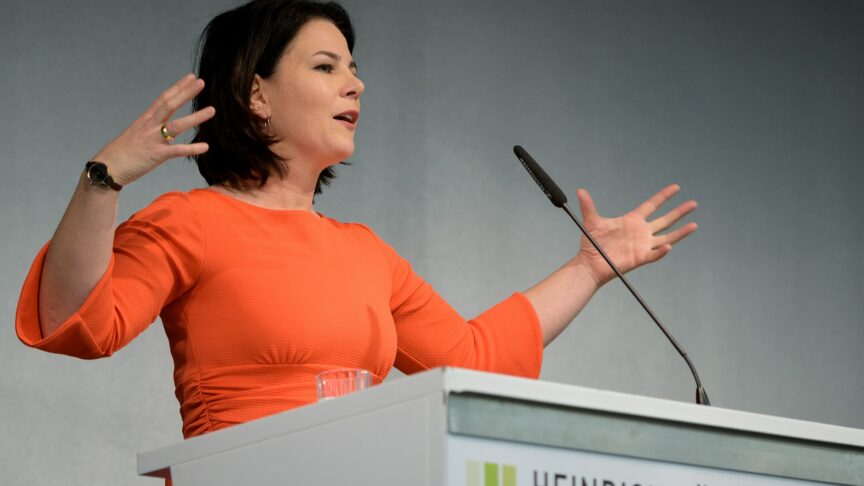
ECFR’s Janka Oertel and Andrew Small discuss how the new government in Berlin will adjust Germany’s approach to China

Mark Leonard welcomes Alicja Bachulska and Janka Oertel to discuss their latest book, “The Idea of China.”

Mark Leonard welcomes Angela Zhang to discuss China’s big tech regulation

Mark Leonard welcomes Robbie Diamond and Janka Oertel to discuss de-risking and the future of Europe’s green industries

Mark Leonard welcomes Janka Oertel to discuss her new book “End of the China illusion” and the West’s biggest misconceptions about China

Mark Leonard welcomes Duan Jiuzhou to talk about China’s role in the MENA region

Janka Oertel welcome Wang Dong, to talk about the current tensions between Washington and Beijing
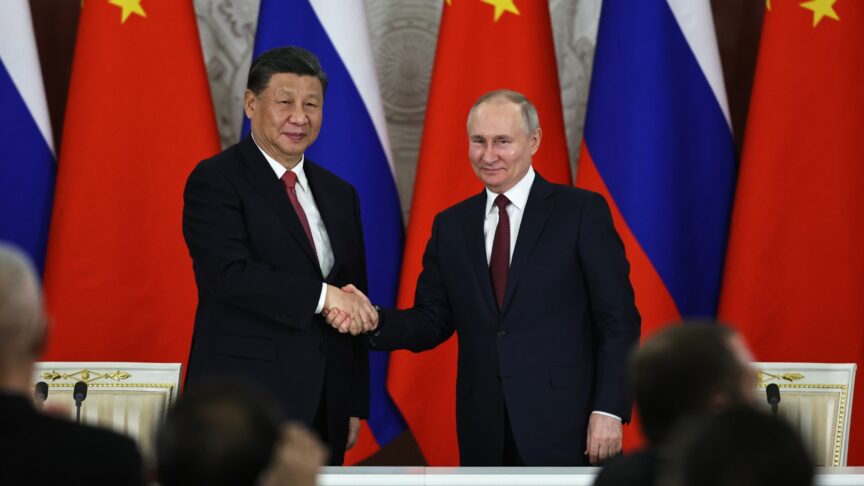
Mark Leonard welcomes Janka Oertel and Alicja Bachulska, to discuss China-Russia relations

Janka Oertel and Liu Hongqiao discuss China’s role at COP27 and the outlook of the country’s energy transition

Introducing our new podcast mini-series In:Sight China. Subscribe now!

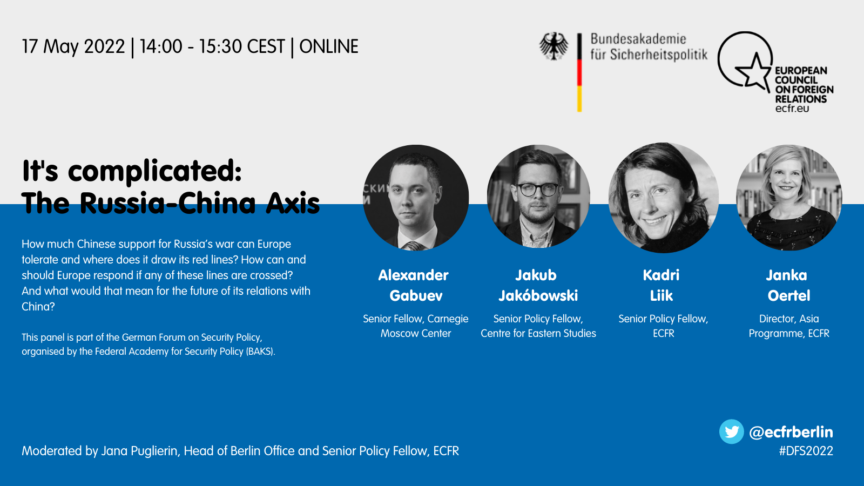
This event is part of the German Forum on Security Policy, organised by the Federal Academy for Security Policy (BAKS).
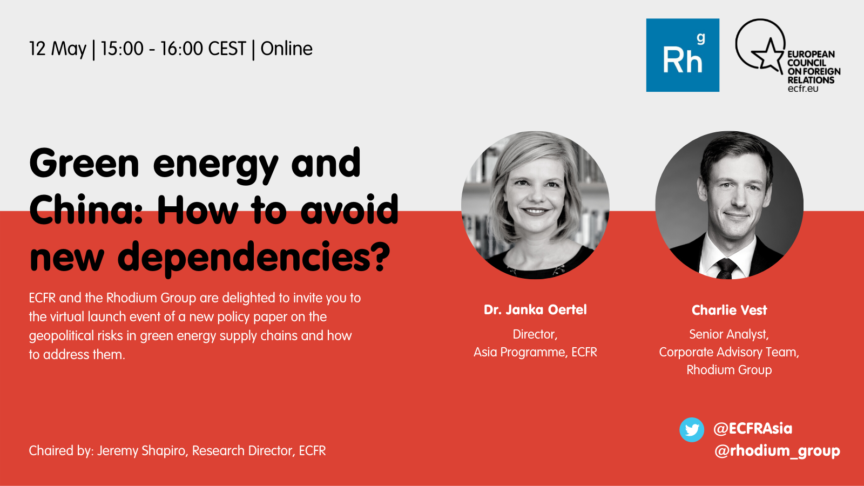
Rhodium Group are delighted to invite you to the virtual launch event of our new policy paper “Circuit Breakers: Securing the Green Energy Supply Chain”
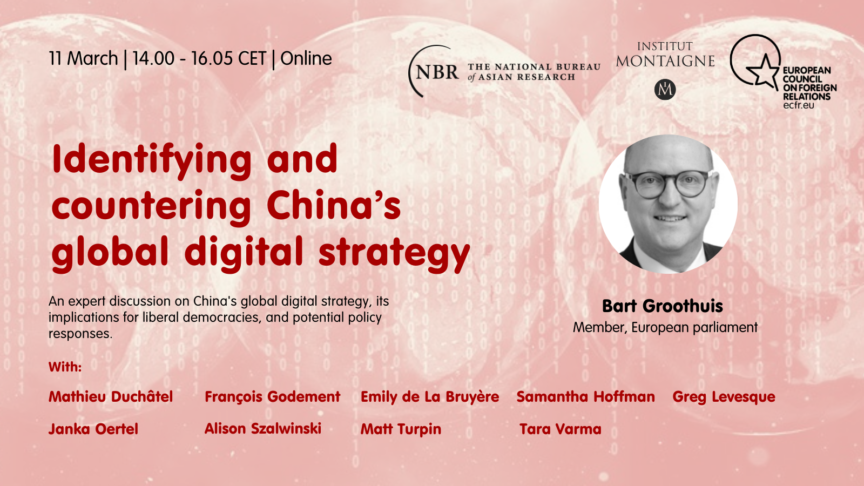
NBR, Institut Montaigne (IM), and ECFR partner for a joint virtual event to discuss China’s global digital strategy
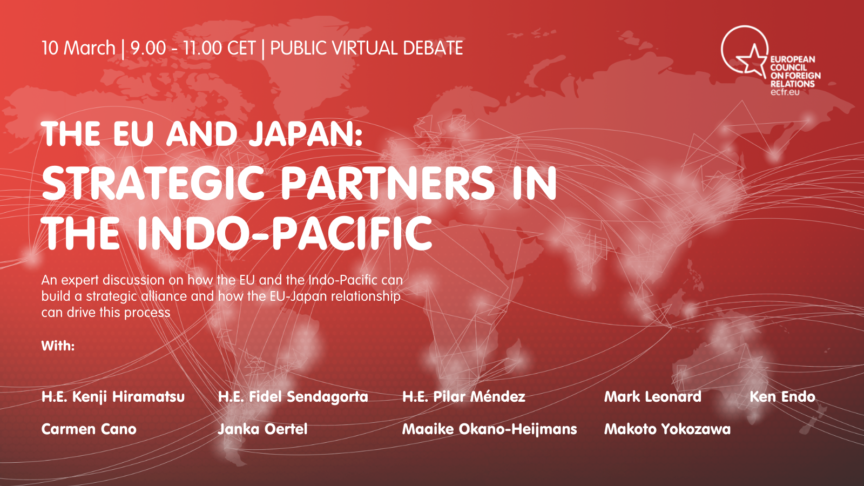
In collaboration with the Embassy of Japan in Madrid, ECFR has organised a public virtual debate to explore how the EU and the Indo-Pacific can build a strategic alliance and how the EU-Japan relationship can drive this process
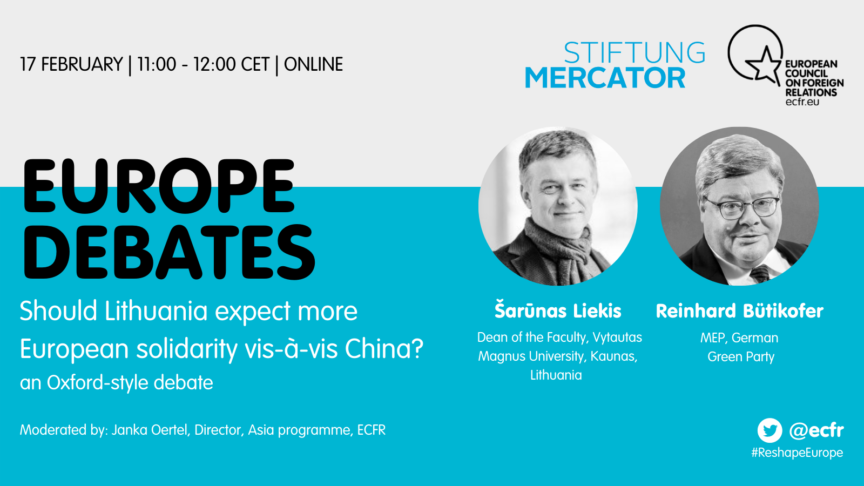
This Oxford-style debate is part of ECFR’s Re:shape Global Europe project supported by Stiftung Mercator
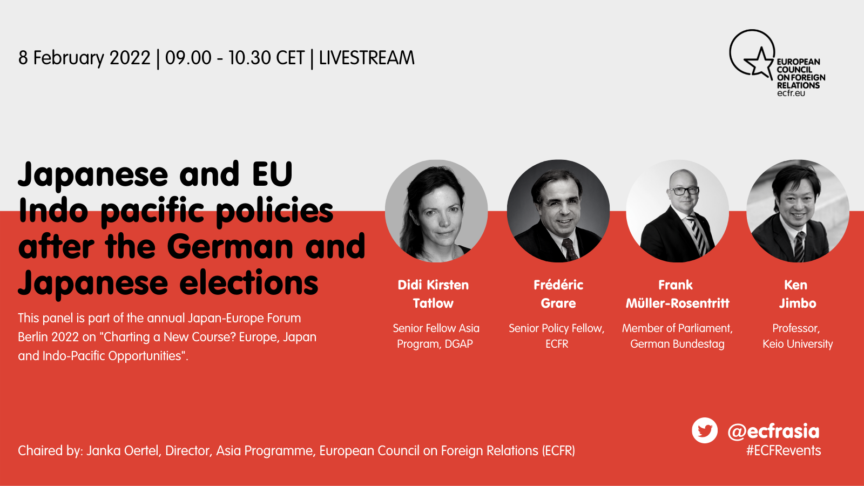
How will the new administrations in Germany and Japan impact the EU’s and Japanese Indo-Pacific strategy and China policy?
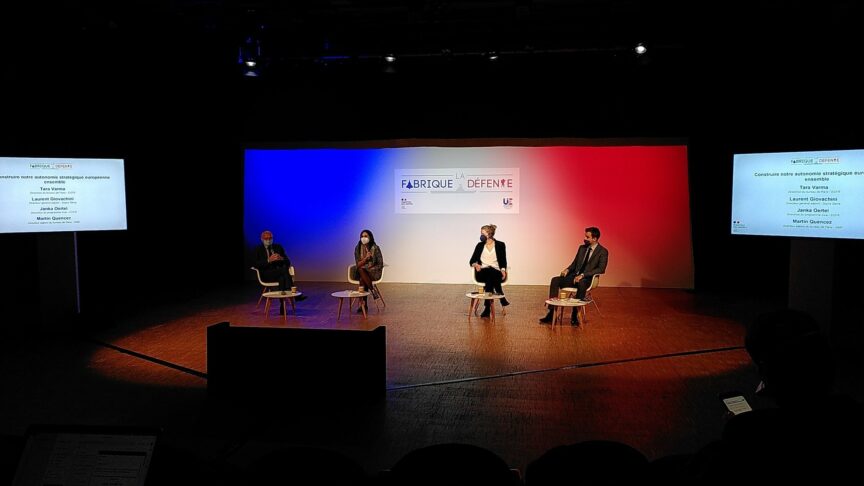
Dans le cadre de La Fabrique Défense, l’ECFR Paris présentera une table-ronde en personne
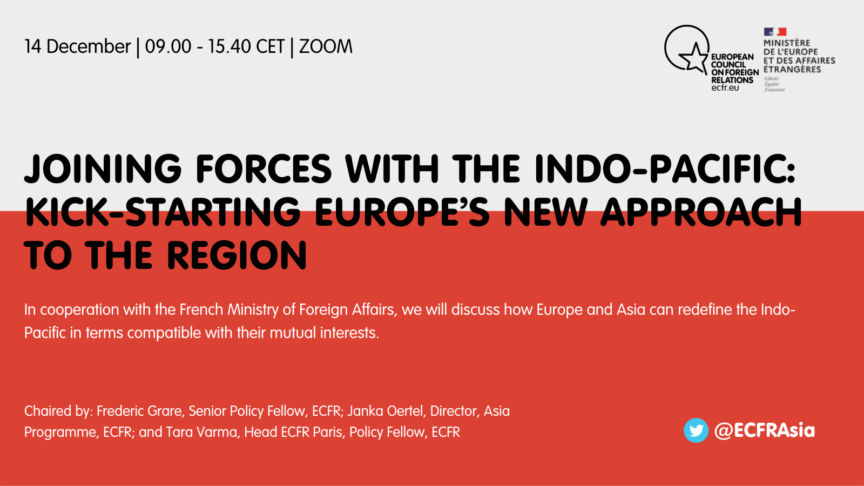
Over the course of the day, we will discuss how Europe and Asia can redefine the Indo-Pacific in terms compatible with their mutual interests. The 3 sessions will look specifically at trade, connectivity, and the Green Transition
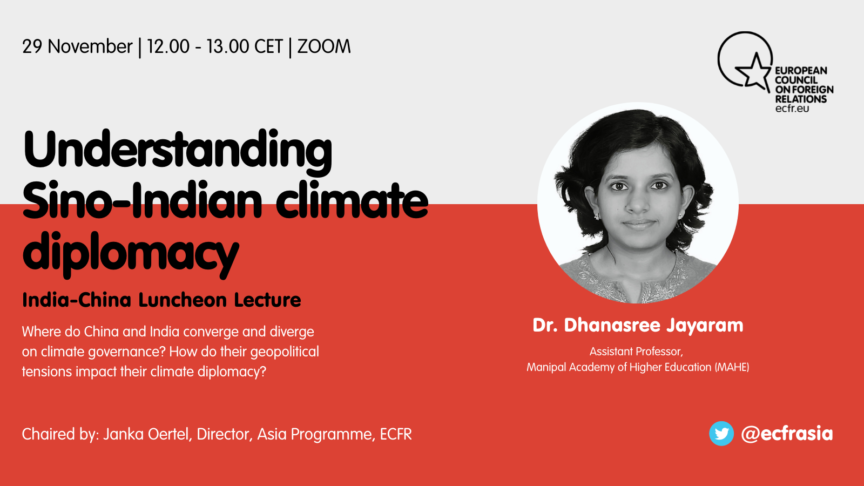
Where do China and India converge and diverge on climate governance? How do their geopolitical tensions impact their climate diplomacy?
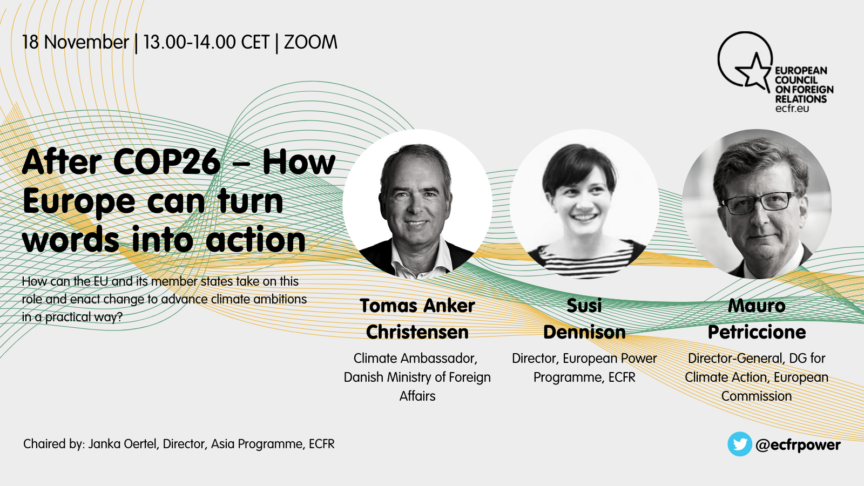
How can the EU and its member states take on this role and enact change to advance climate ambitions in a practical way?